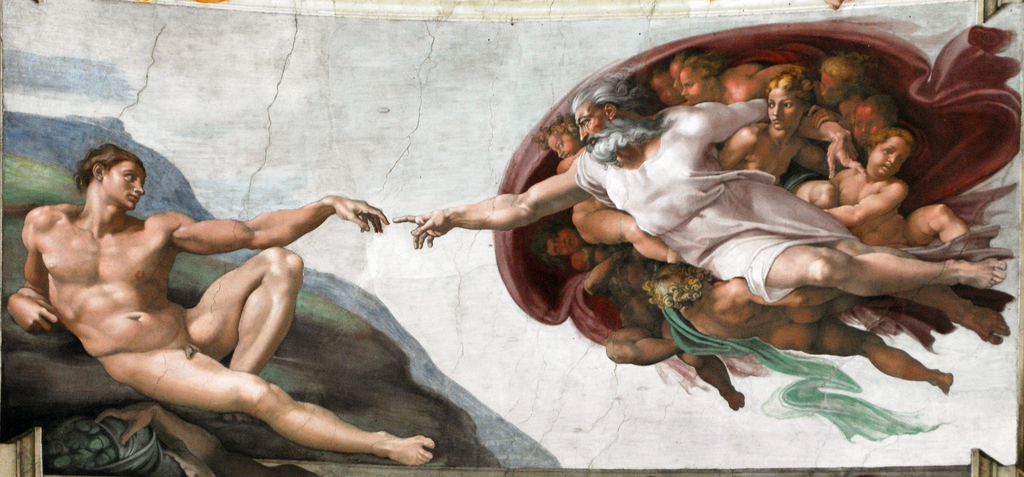The Infinite Dignity of Every Human Being
In April 2024, the Catholic Church through the Dicastery for the Doctrine of the Faith (DDF) issued an important new declaration called Dignitas Infinita (Latin for “Infinite Dignity”) that reaffirms the fundamental dignity of the human person. This declaration, approved by Pope Francis, builds upon the Church’s longstanding teaching on the inherent worth and sacredness of every human life.

A lot has been written about this declaration, both in favor and against it. It is not the intend of this blog entry to comment on this matter, but to highlight the gist of it and what it means to me as a lay Catholic person. A brief description of the document’s history and its composition can be read from the Word of Fire website.
As Catholics, we believe that every single human person possesses an infinite, inalienable dignity simply by virtue of being human. This principle of dignitas infinita is a foundational teaching of the Church that has profound implications for how we view and treat one another. The Catechism of the Catholic Church states that the human person is “the only creature on earth that God has willed for its own sake” (CCC 1703). Each of us is created in the image and likeness of God, and this divine imprint gives us an inherent worth and value that can never be taken away, no matter our circumstances or abilities. This means that the dignity of the unborn child, the elderly person, the individual with disabilities – indeed, the dignity of every single human being – must be respected and protected. As the Congregation for the Doctrine of the Faith has stated, “the dignity of the person prevails in and beyond every circumstance, state, or situation the person may ever encounter” (see Liberta Religiosa 32). Our dignity is not contingent on our intelligence, health, or independence, but is rooted in the simple fact that we are human. We see this principle of dignitas infinita play out in many ways. It means that the exploitation of vulnerable persons, such as human trafficking or the abuse of the elderly, is a grave injustice that violates their God-given dignity. It means that euthanasia and assisted suicide are morally unacceptable, as they fail to respect the inviolable worth of the human person. And it means that each person, regardless of their social or economic status, deserves to have their basic needs met and to be able to flourish as a human being. At the same time, recognizing the infinite dignity of every person should inspire us to treat one another with the utmost respect, compassion, and care. It should motivate us to stand up for the rights and wellbeing of the weak and marginalized. And it should compel us to work towards a society that upholds the inherent worth of all, from conception to natural death. The truth of dignitas infinita is a profound one, with ramifications that touch every aspect of human life and society. As we strive to live out this teaching in our own lives, may we be ever mindful of the infinite value of every person we encounter – and may that awareness transform how we think, speak, and act towards one another.
What does it mean to me?
The Catholic teaching of dignitas infinita has a profound impact on how I live my everyday life. Here’s how this principle applies to me:
First and foremost, recognizing the inherent, inalienable dignity of every person inspires me to treat others with the utmost respect, compassion, and care. The Catechism teaches that each human being is “willed for its own sake” by God, and this divine imprint gives each of us an intrinsic worth that can never be taken away. This means I must never treat others as mere objects or means to an end but always as ends in themselves, worthy of my reverence and concern. Practically speaking, this calls me to oppose all forms of exploitation, discrimination, and injustice that violate human dignity. Whether it’s human trafficking, abuse of the elderly, denying the basic rights and needs of the vulnerable, or simply liking or sharing a post that mocks or dismisses part of society or someone on social media, any action that fails to uphold the infinite worth of the human person is a grave moral wrong. Instead, I must work to build a society that protects and promotes the dignity of all, especially the weak and marginalized.
At the same time, the principle of dignitas infinita should shape my own interior dispositions and choices. Knowing that each person has an inalienable dignity, I should strive to cultivate virtues like humility, compassion, and a sense of solidarity with others. I need to be wary of any attitudes or behaviors that objectify or degrade the human person and instead seek to encounter each individual with reverence and care.
Ultimately, the truth of dignitas infinita is a profound one, with ramifications that touch every aspect of my life. As I strive to live it out, I must remain ever mindful of the infinite value of every person I encounter—and let that awareness transform how I think, speak, and act toward others.
May I find strength to do the above so that my actions reflect the true meaning of being human. Amen.